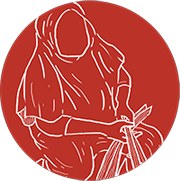
This grant is open to local and grassroots organizations in Southeast Asia, especially from Indonesia, Malaysia, Philippines and Vietnam, who are working to effectively manage and develop NTFPs and other resources inside their forested landscape.
IPLCs play a pivotal role in the sustainable management of forested landscapes, which is crucial for both climate change mitigation and adaptation. As a way to contribute to strengthening IPLCs to represent themselves, collaborate effectively with others, and build solidarity networks, NTFP-EP offers grant for local and grassroots organizations who are working to effectively manage and develop NTFPs and other resources inside their forested landscape.
NTFP-EP will support new or continuing initiatives needing start-up capital and for meeting urgent needs of established organizations (facing threats, unexpected opportunities or finding themselves with a gap in funding support). The grant is also expected to better mainstream ecosystem and biodiversity management in the work of grassroots and civil society organizations and thereby demonstrating how healthy ecosystems can contribute to poverty alleviation. Reversing degradation can further support goals for subsequent, sustainable use and conservation of ecosystems.
Some activities that can be supported by this grant includes:
Resource management (RM) – enhances or revives sustainable traditional practices, adapts local RM to changing circumstances, improves capacity for monitoring and RM planning, shares important learning.
Tenure – claims for land rights/ access to forest lands, supports processing and/or solving territorial claims of communities.
Livelihood – improves income situation through fair trade of forest products from community-based enterprises and has potential to become self-sustaining, addresses possible impacts on the resource.
Response to threats – raises awareness on the impact of destructive developments among communities directly affected or within society at large, undertakes effective lobby to halt these development, monitors and enforces regulations.
Climate change mitigation and adaptation – builds resilience among forest-based groups in the face of climate change, tests localized climate change adaptation interventions.